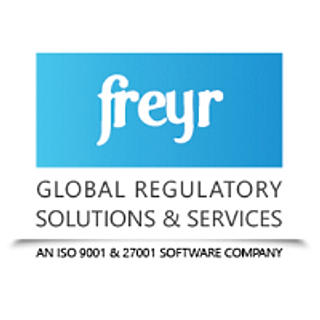Chemical Product Registration in Japan: A Comprehensive Guide
- Freyr Global Regulatory Solutions
- Nov 27, 2024
- 3 min read
Navigating the registration of chemical products in Japan is a meticulous undertaking that mandates specialized knowledge, strategic foresight, and an in-depth grasp of the nation's regulatory environment. Japan is revered for its strict regulations aimed at safeguarding safety and promoting environmental sustainability regarding chemical products. For businesses, comprehending the Chemical Product Registration process in Japan is essential for regulatory adherence and seamless market entry. This blog delves into the principal regulatory authorities, prerequisites, and obstacles associated with registering chemical products in Japan, along with professional insights to facilitate the process. Understanding the Regulatory Framework Japan imposes rigorous chemical regulations that control the registration of chemical products. The key entities overseeing this process include: Chemical Product Registration in Japan: An In-Depth Overview These regulatory agencies collaborate to ensure that chemical products available in Japan satisfy the nation's high standards for safety, quality, and environmental integrity. For companies, grasping the nuances of these regulatory structures is vital for an efficient Chemical Product Registration process in Japan. Essential Requirements for Product Registration To register a chemical product in Japan, companies need to submit extensive data addressing various aspects of the product, such as: Composition: Comprehensive details on chemical composition, including active ingredients, additives, and potential contaminants. Intended Use: Documentation clarifying the product's intended applications and potential exposure levels. Safety Data: Strong emphasis is placed on environmental safety and consumer well-being in Japan. Companies must provide detailed toxicological studies, chemical analyses, and risk assessments. This data must be generated in line with Japanese standards and guidelines, often involving specific testing protocols that may differ from those in other areas. Environmental Impact Evaluation: Assessments of the product's effects on the environment. Assembling this comprehensive data is crucial for establishing compliance with Japanese chemical regulations and ensuring consumer safety. Eligibility for Registration Only entities physically registered in Japan can initiate the chemical product registration. Specifically, a registered Market Authorization Holder (MAH) must be appointed to import or market these products. This emphasizes the need for a local presence or partnership to facilitate the registration process. Step-by-Step Guide to Chemical Product Registration in Japan The registration process unfolds through several pivotal stages: Pre-registration Consultations: Companies should engage with regulatory bodies or expert consultants before commencing the registration process to fully understand all requirements. Submission of Application Documents: After gathering and preparing all necessary data, the company submits the relevant documents—including product composition, safety assessments, and intended use information—to the appropriate regulatory bodies (MHLW and METI). Review by Regulatory Authorities: Post-submission, regulatory agencies review the application for completeness and compliance. The review duration may vary based on the product's complexity and the thoroughness of the submitted documents. Issuance of a Registration Certificate: After a successful review, the regulatory bodies provide a registration certificate that permits the product to be marketed and sold in Japan. Advancing through these stages demands careful planning and strict compliance with Japan's Chemical Regulations. Overcoming Challenges in Chemical Registration in Japan Businesses entering the Japanese market might face various challenges, including: Language Barriers: All submissions must be in Japanese, and communication with regulatory authorities typically occurs in the local language, which can pose challenges for foreign entities. Complex Regulations: Japanese regulatory requirements may differ significantly from other regions, particularly in toxicology testing and environmental assessments. Familiarizing oneself with these nuances is critical for Japan's chemical regulatory compliance. Testing Protocols: Japan frequently mandates specific testing protocols that are not required in other markets. Compliance with these protocols is essential to prevent delays and extra costs. Collaborating with seasoned regulatory consultants and local representatives familiar with the landscape is prudent for effectively addressing these challenges. Expert Advice For companies aiming to streamline their registration and assure compliance with Japanese regulations, joining forces with a specialized consultancy such as Freyr can be extremely beneficial. Our expertise can help navigate the intricacies of the registration process more smoothly. For tailored support, consider contacting Freyr today through the information available on their |











Comments